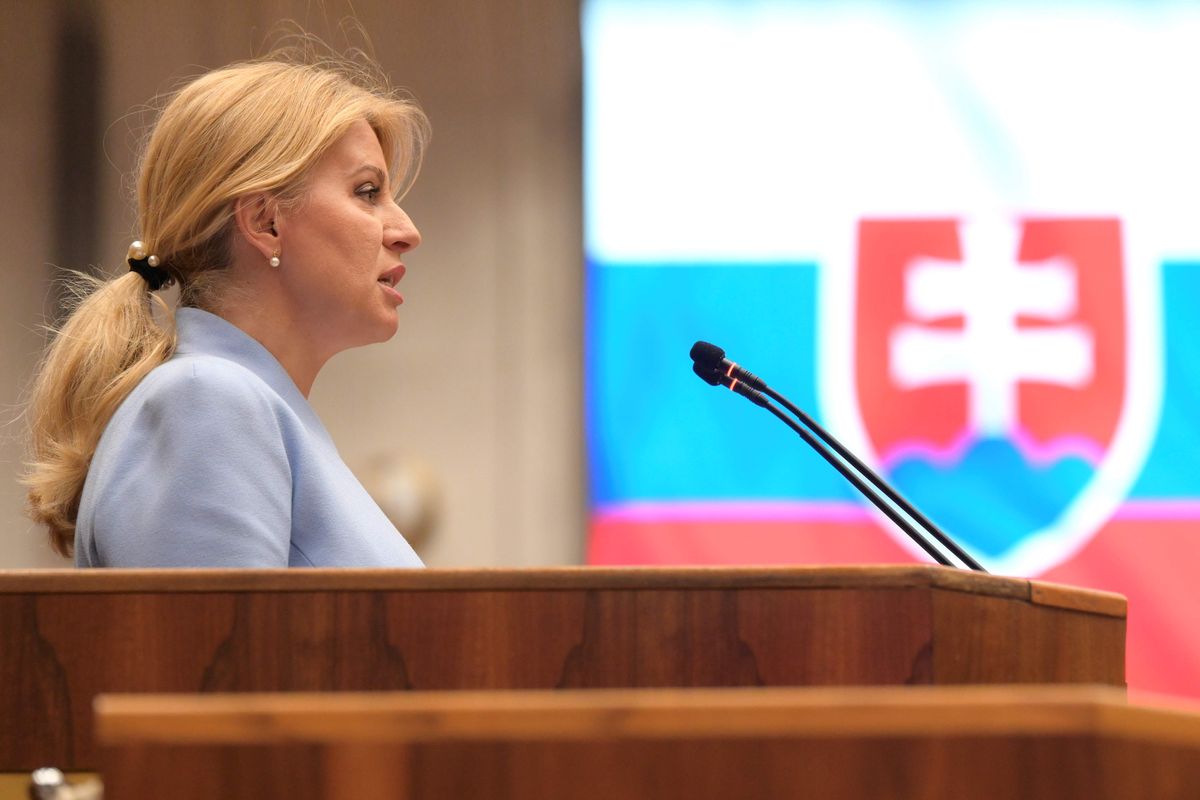President Warns New Penal Code Changes Might Fly in Face of Constitution

Bratislava, January 18 (TASR) - The amendment to the Penal Code might be at odds with the Slovak Constitution and interfere with the right of aggrieved parties to a just process, President Zuzana Caputova declared in Parliament on Thursday, urging lawmakers not to approve such fundamental changes to the criminal law via a fast-track procedure.
Caputova added that the new combination of lighter sentences, higher criminal damage classifications, shortened statutes of limitation and changes to suspended sentencing would entail the state resigning its role to protect its citizens and enforce justice, and it could also represent a deviation from the protection of the rule of law.
The head of state warned that the new rules drastically lower criminal sentences for all economic and property-related crimes, even in cases in which the most serious economic crimes are perpetrated by organised groups. She cited an example: under the new amendment, if a perpetrator committing theft causes damages up to €350,000, he or she might avoid jail and get away with a suspended sentence.
The president also objects to the fact that all crimes listed in the fourth and fifth chapters of the Penal Code might be punishable with suspended sentences, without any regard to the extent of the crime and criminal damage, even if the crime were perpetrated by an organised group.
She pointed out that in most cases the amendment halves the statute of limitations. "In such cases, perpetrators might avoid justice completely," she warned.
The changes will have a fundamental impact on investigations into corruption-related crimes. "For instance, the deployment of surveillance or an undercover agent can be used only in crimes ... in which the upper range of criminal sentencing exceeds five years," she stated, pointing out that by changing the classification of criminal damage, many corruption crimes would be reclassified as mere misdemeanors, and it will no longer be possible to deploy undercover agents or surveillance to investigate them. According to experts, this might lead to increased crime rates.
Caputova also warned about the risk of scrapping the Special Prosecutor's Office hastily, as more than 1,300 cases would need to be reassigned overnight. This carries a realistic risk of delays in criminal proceedings.
The head of state is concerned that the new rules might militate against the state's commitment to effectively prosecute crimes that endanger the constitutionally-protected rights of citizens. In this regard, she cited verdicts of the Constitutional Court and potential discord with the principles of the rule of law. She finds the effort to lighten criminal sentencing and employ alternative punishments to a wider extent legitimate, but the state would need to build up sufficient capacities in terms of probation officers, other personnel and material means first, as it is severely underequipped at the moment to monitor compliance with such alternative punishments.
The president appreciates a statement made by House Chair Peter Pellegrini (Voice-SD) that the new Penal Code changes still need to be revised. "It must also be said, however, that if it weren't for political and public pressure, this amendment would in all probability already be in effect," she added, urging lawmakers not to approve these changes in such a manner.
